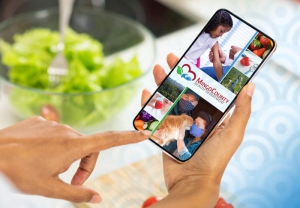Food Safety for Campers
Camping and cooking outdoors is fun, but foodborne illness is no fun! Foodborne illness can spread from other people who are ill or food and water that has germs in it. Foods like meat, chicken, and eggs may have germs in them and should only be eaten after cooking. Vegetables and fruits can sometimes pick up germs from the soil and should only be eaten if washed carefully. Keep yourself and your friends safe when you cook outdoors by following these easy tips:
9 Top Tips for Food Safety
- Wash your hands after using the bathroom, before preparing food, before eating, and after handling foods like meat, chicken, or eggs. Wash with soap and water to protect your friends from the germs on your hands or harmful germs in uncooked meat, chicken or eggs.
- Use clean surfaces to fix your food. Always wash cutting boards and knives and plates and other utensils that have been in contact with raw meat, chicken or eggs. Never use dirty cutting boards or utensils to prepare salads or raw vegetables or fruits. Never put cooked meat or chicken on the plate that was used for uncooked meat or chicken. Use detergent and clean treated water to wash your cooking utensils.
- Do not drink water from rivers, lakes, creeks or streams. Germs from debris and animal feces can get into outdoor water sources. Never drink from a river, lake or stream unless the water has been treated.
- Do not share cups or utensils with others. Drinking and eating after another person could make you sick.
- Pack your food in tight, waterproof bags and containers and keep the containers sealed. This will keep germs and insects from getting in your food. Ask your counselor about storing your food away from wildlife. Never store food, even snack food, in a tent.
- Keep your food in an insulated cooler to help keep foods at the right temperatures. Cold foods should be kept cold and hot food hot. Storing food at the right temperature can prevent germs from growing in your food.
- Make sure your food is cooked to the right inside temperatures. The only way to do this is to use a food thermometer. Meats, poultry, eggs and other food items can contain germs and checking with a food thermometer is the only way to know for sure the food is safe. Just because it “looks done” doesn’t mean it is safe!
- Use meat and fish as little as possible because it is hard to keep fresh in the outdoors. If you catch fish to eat, keep the fish chilled or alive until you are ready to cook it.
- Wash vegetables and fruits in clean, treated water before eating.

 Download our free app today to receive real-time alerts, catch up on news, view upcoming events and track important dates.
Download our free app today to receive real-time alerts, catch up on news, view upcoming events and track important dates.